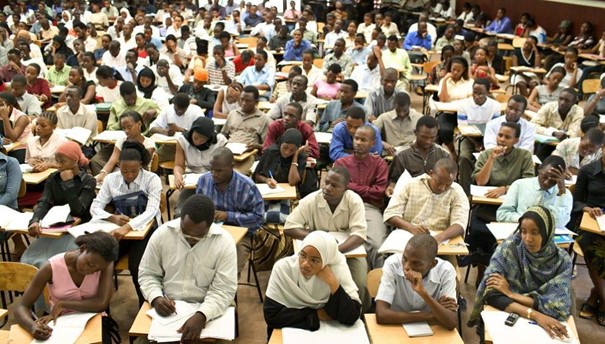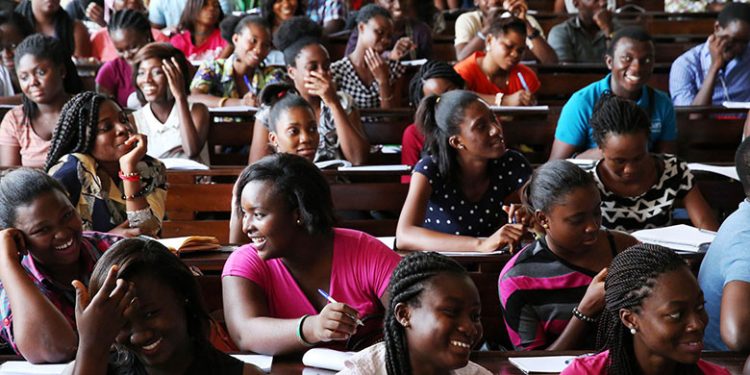Africa is often referred to as “The Continent of the Future” or “Rising Africa.” The continent is known not only for its abundant natural resources but also for its young population. Therefore, it’s crucial to discuss the type of education and employment opportunities provided for the young population. With a population of 1.3 billion and an average age of 19, a significant portion of African youth prefer to pursue education outside the continent for various reasons.
The internal political, economic, and security issues of African countries are among the leading causes that negatively affect the education system and lead African youth to leave their countries for better education. Of course, each country has its own unique problems, and at the same time, the reasons why young people choose foreign countries for education are reported. According to a report titled Best Global Destinations for Higher Education for African Students published by the U.S.-based Carnegie Endowment for International Peace in 2000, 281,000 young Africans chose to pursue education abroad, while this number increased to 441,000 in 2010 and 624,000 in 2020. While Moroccans are the first among those who prefer education outside the continent, Nigerians take the lead in Sub-Saharan Africa. France is first among the countries preferred outside the continent, followed by China, the United States, Germany, the United Kingdom, the United Arab Emirates (UAE), Canada, and Türkiye.[1]
Why do African youth prefer to move outside the continent?
There are different reasons why African youth prefer to study abroad, especially in the US and Europe. Reasons include the scholarships, accommodations, job opportunities, laboratory and classroom facilities provided by foreign countries, compared to many African countries where education doesn’t receive sufficient budget allocation and where the curriculum and education conditions are not ideal. Additionally, it’s worth noting that obtaining education in Western countries is perceived as a “prestige” in Africa. Hence, African youth also choose education overseas to gain more acceptance and higher status in their own societies.
The number of universities in many African countries is increasing every year. In recent years, many foundation universities have also been established in addition to state universities. Uganda, South Africa, and Kenya are just a few examples of these countries. For instance, while only one university was operational in Uganda in the 1970s, now nearly sixty universities provide education. Indeed, Uganda Islamic University, established in 1988, currently provides education to around 10,000 students from twenty-two countries in Africa and beyond.[2]
Three examples for Africa: Nigeria, Sudan, and South Africa
Considering that there are 54 countries in Africa and a population of 1.3 billion, it is necessary to elaborate on the topic with notable examples without generalizing. In this regard, give the examples of South Africa, known for its quality education, Sudan, whose education system has been devastated due to internal conflict, and Nigeria, where unresolved problems pose a significant threat to the education system. South Africa, which stands out with its education quality and opportunities for students, also hosts many students from Türkiye for education. It is home to universities such as Cape Town, Witwatersrand, Pretoria, and Stellenbosch, ranked within the top 500 globally. This country constitutes a significant alternative to Western universities with its high quality of education and affordable tuition fees. In addition to the quality of education, young Africans and people from all over the world prefer the Republic of South Africa for its living conditions and natural beauty.
While South Africa shines with its education quality, many African countries have experienced a decline in education quality in recent years due to economic and political crises. Sudan serves as a very vivid example in this regard. Particularly favored for Arabic and Islamic education, Sudan’s education system has suffered greatly in recent years due to political crises and internal conflicts. Young people who came to Sudan for education from various countries, particularly from Africa, were forced to return to their countries after the civil war. Despite being seen as an education hub for the Islamic world, Sudan’s education system has suffered irreparable damage due to economic crises and internal conflict. Institutions like the International University of Africa, Al Neelain University, University of Bahri, University of Medical Sciences and Technology, Elrazi University, Sudan University of Science and Technology, University of Kordofan, Omdurman Islamic University, Jazeera University, and University of Khartoum highlight the international dimension of education in Sudan. The internal crises in Sudan, which creates an alternative in Africa, have negatively affected the education system and students, forcing many students to drop out of their education.
With a population of 220 million and a rich religious and cultural heritage, Nigeria’s educational institutions struggle with many problems from kindergarten to university. Insufficient budget allocated to education, inability to pay salaries on time, strikes, internal conflicts, terrorist attacks, corruption, and high tuition fees negatively affect education. In Nigeria, where the gap between the rich and the poor is growing, education in public schools is declining due to insufficient budget, while there is a notable increase in private schools. Today, nearly 170 universities are operating in Nigeria. Education in the country, with its state system, revolves around state administrations, churches, private schools, and madrasas, with no common curriculum. Despite efforts, Nigeria remains among the countries where the education system fails to achieve the desired level. Therefore, those with economic means in the country send their children to either costly private universities or schools in Western countries.
The country often hits the headlines with academics on strike due to unpaid salaries, and many aspire to work abroad. Nigerians working abroad in fields like medicine, pharmacy, or engineering cannot contribute to their homeland. Nigerian youth prefer countries like Ghana, Benin, Egypt, or pre-civil war Sudan for education, adversely affecting the Nigerian economy. Indeed, students studying abroad spend approximately $3 billion annually.
Nigeria is home to the highest number of children who cannot go to school in the world due to Boko Haram attacks and other reasons. In addition, more than 7 million Almajirai aged between 4 and 15 in the country grow up without protection, vocational, or formal education. The Almajiranci system, a form of education to memorize the Quran, has become dysfunctional due to colonial policies and neglect by Muslims in the country. The children in the Almajiranci system try to meet their needs by begging, and when they cannot find jobs in the future, they either fall into the hands of armed groups or engage in illegal activities, thus not only ruining their own futures but also negatively impacting the country’s development.[3]

Brain Drain in Africa and Its Consequences
The fact that African students receive education abroad has both positive and negative consequences. Indeed, African youth studying abroad have the opportunity to transfer their experiences and knowledge to their people upon returning to their countries, while those who do not return contribute to brain drain. When young individuals choose not to return to their home country after completing their education, fulfilling the demand for skilled workers in African countries becomes increasingly challenging. This situation also results in the inability of educated young people to transfer their experience and knowledge to their own people. Although it is possible to say that young people who return to their countries have the opportunity to observe their countries from an external perspective and see their shortcomings, it is an undeniable fact that a significant portion of African youth do not want to return to their countries after their education.
African youth studying abroad have the opportunity to transfer their experiences and knowledge to their people upon returning to their countries, while those who do not return contribute to brain drain.
On the other hand, we should also note that “African elites” and their children also demand education outside the continent. Indeed, African leaders in power, wealthy Africans, or prominent members of society prefer their children to go abroad for education, which results in the country of education deepening its political, economic, and military influence in African countries. Many political and military elites in countries such as Cameroon, Gabon, Nigeria, and African countries greatly affected by coups in recent years have received education in the United States or Europe. This situation highlights that the education process can create a “dependency” relationship, leading to economic, cultural, and political dependence on the countries that provide education.
As long as the problems in the education system, as seen in the examples of Nigeria and Sudan, are ignored, they grow and create even bigger societal problems. Conflicts, poverty, and parental neglect adversely affect children’s education. Young people who do not receive a good education and cannot find employment engage in crime, negatively affecting the country and society.
Unless the state mechanism, the business world, and the prominent members of society collaborate to find a holistic solution to the problem of education in African countries for economics, security, and employment after graduation, the problems become permanent. Otherwise, Africa and these countries, which have a rich history in education, cannot solve their own problems or contribute to regional or global solutions due to problems in the education system.
References
[1] See https://carnegieendowment.org/2023/07/13/what-are-top-global-destinations-for-higher-education-for-african-students-pub-90203
[2] See https://www.aa.com.tr/tr/dosya-haber/afrikali-gencler-universitelerin-yetersiz-olmasi-nedeniyle-kita-disina-gidiyor/3034272
[3] See https://afam.org.tr/bir-afrika-ulkesinin-tarihi-serencami-nijeryada-egitim-meselesi-ve-almajirilik-sistemi/












































